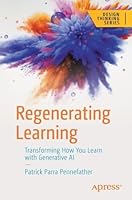
Bayesian Reasoning and Machine Learning
- Length: 650 pages
- Edition: 1
- Language: English
- Publisher: Cambridge University Press
- Publication Date: 2012-01-31
- ISBN-10: 0521518148
- ISBN-13: 9780521518147
- Sales Rank: #573842 (See Top 100 Books)
Machine learning methods extract value from vast data sets quickly and with modest resources. They are established tools in a wide range of industrial applications, including search engines, DNA sequencing, stock market analysis, and robot locomotion, and their use is spreading rapidly. People who know the methods have their choice of rewarding jobs. This hands-on text opens these opportunities to computer science students with modest mathematical backgrounds. It is designed for final-year undergraduates and master’s students with limited background in linear algebra and calculus. Comprehensive and coherent, it develops everything from basic reasoning to advanced techniques within the framework of graphical models. Students learn more than a menu of techniques, they develop analytical and problem-solving skills that equip them for the real world. Numerous examples and exercises, both computer based and theoretical, are included in every chapter. Resources for students and instructors, including a MATLAB toolbox, are available online.
Table of Contents
part I Inference in Probabilistic Models
chapter 1 Probabilistic Reasoning
chapter 2 Basic Graph Concepts
chapter 3 Belief Networks
chapter 4 Graphical Models
chapter 5 Efficient Inference in Trees
chapter 6 The Junction Tree Algorithm
chapter 7 Making Decisions
part II Learning in Probabilistic Models
chapter 8 Statistics for Machine Learning
chapter 9 Learning as Inference
chapter 10 Naive Bayes
chapter 11 Learning with Hidden Variables
chapter 12 Bayesian Model Selection
part III Machine Learning
chapter 13 Machine Learning Concepts
chapter 14 Nearest Neighbour Classification
chapter 15 Unsupervised Linear Dimension Reduction
chapter 16 Supervised Linear Dimension Reduction
chapter 17 Linear Models
chapter 18 Bayesian Linear Models
chapter 19 Gaussian Processes
chapter 20 Mixture Models
chapter 21 Latent Linear Models
chapter 22 Latent Ability Models
part IV Dynamical Models
chapter 23 Discrete-State Markov Models
chapter 24 Continuous-state Markov Models
chapter 25 Switching Linear Dynamical Systems
chapter 26 Distributed Computation
part V Approximate Inference
chapter 27 Sampling
chapter 28 Deterministic Approximate Inference
part VI Appendix
chapter 29 Background Mathematics







